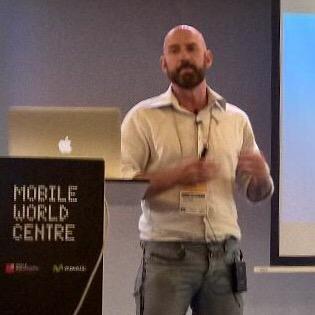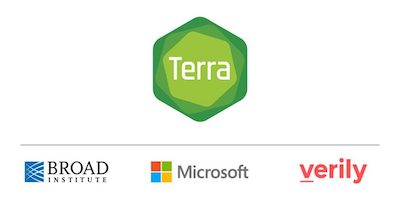open APIs
See the following -
10 Steps to Achieving Interoperability
When nine organizations -- several of them health IT vendors -- urged Congress in a Dec. 7 letter to resist delaying Stage 3 of the Meaningful Use EHR Incentive Program, the plea came with an outline for strengthening interoperability. "What is clear to us is that current requirements and pace of the Meaningful Use program have taken away time and valuable resources from fixing our nation's interoperability problem, the organizations -- Apervita, athenahealth, Intel, National Alliance on Mental Illness, New Directions Technology Consulting, Oracle, United Spinal Association and Verizon -- wrote in their letter to Congressional leadership...
- Login to post comments
A New Pothole on the Health Interoperability Superhighway
On July 24, the new administration kicked off their version of interoperability work with a public meeting of the incumbent trust brokers. They invited the usual suspects Carequality, CARIN Alliance, CommonWell, Digital Bridge, DirectTrust, eHealth Exchange, NATE, and SHIEC with the goal of driving for an understanding of how these groups will work with each other to solve information blocking and longitudinal health records as mandated by the 21st Century Cures Act...
- Login to post comments
APIStrat Boston to Highlight Link Between APIs and Open Source Projects
 This year's API Strategy and Practice (known as APIStrat)—to be held in Boston on November 2-4—has a strong open source component running throughout the event, and with little wonder. Successful API strategies more often than not either contribute new open source projects, or draw on the rich source of tools already built by the open source community. The API mindset has always lent itself to an open source ethos. APIs are all about opening up internal assets, data, and systems in order to connect and collaborate with a wider ecosystem of partners and end users...
This year's API Strategy and Practice (known as APIStrat)—to be held in Boston on November 2-4—has a strong open source component running throughout the event, and with little wonder. Successful API strategies more often than not either contribute new open source projects, or draw on the rich source of tools already built by the open source community. The API mindset has always lent itself to an open source ethos. APIs are all about opening up internal assets, data, and systems in order to connect and collaborate with a wider ecosystem of partners and end users...
- Login to post comments
Broad Institute and Verily partner with Microsoft to accelerate the next generation of the open source Terra platform for health and life science research
 On Monday, Broad Institute of MIT and Harvard, Verily, an Alphabet company, and Microsoft Corp. announced a strategic partnership to accelerate new innovations in biomedicine through the Terra platform. Terra, originally developed by Verily and the Broad Institute, is a secure, scalable, open-source platform for biomedical researchers to access data, run analysis tools and collaborate. Terra is actively used by thousands of researchers every month to analyze data from millions of participants in important scientific research projects.
On Monday, Broad Institute of MIT and Harvard, Verily, an Alphabet company, and Microsoft Corp. announced a strategic partnership to accelerate new innovations in biomedicine through the Terra platform. Terra, originally developed by Verily and the Broad Institute, is a secure, scalable, open-source platform for biomedical researchers to access data, run analysis tools and collaborate. Terra is actively used by thousands of researchers every month to analyze data from millions of participants in important scientific research projects.
- Login to post comments
Chris Haddad on API Branding for Improved Community Reach
In this special guest post for OStatic, Chris discusses the value of API branding and open APIs for improving community reach... Read More »
- Login to post comments
CMS Goes Live with Blue Button - With Life and Cost Saving Applications for 53 Million Americans to Use
 On August 13 at the White House in Washington, D.C., the Office of American Innovation and the Center for Medicare and Medicaid Services (CMS) will host the first Blue Button 2.0 conference. This event will highlight CMS’ strong investment and leadership in Blue Button as a patient driven means for interoperability, cost-effective care and patient safety. Eight years after President Obama’s announcement of the Blue Button initiative to give Veterans, military beneficiaries and Medicare beneficiaries “easy access to their health information” with the use of a “Blue Button”, CMS Administrator Seema Verma took action with “Blue Button 2.0” so that 53 million Medicare beneficiaries can now make use of CMS approved patient facing Blue Button applications, turning a four-year history of claim data into actionable longitudinal health records to prevent costly medical errors, unnecessary redundant care or other harmful and wasteful care.
On August 13 at the White House in Washington, D.C., the Office of American Innovation and the Center for Medicare and Medicaid Services (CMS) will host the first Blue Button 2.0 conference. This event will highlight CMS’ strong investment and leadership in Blue Button as a patient driven means for interoperability, cost-effective care and patient safety. Eight years after President Obama’s announcement of the Blue Button initiative to give Veterans, military beneficiaries and Medicare beneficiaries “easy access to their health information” with the use of a “Blue Button”, CMS Administrator Seema Verma took action with “Blue Button 2.0” so that 53 million Medicare beneficiaries can now make use of CMS approved patient facing Blue Button applications, turning a four-year history of claim data into actionable longitudinal health records to prevent costly medical errors, unnecessary redundant care or other harmful and wasteful care.
- Login to post comments
CMS Inclusion of API’s for Stage 3 Meaningful Use Rule is the Right Decision
 One of these rules, the decoupling of EHR certification and meaningful use brings some hope to those looking to build upon established EHRs and other health databases. Prior to this, there has been a very tightly held belief that EHR systems would contain the answers needed to fulfill all governmental regulations, something that has not been shown to be the case. EHR’s are becoming very important tools for healthcare delivery, yet their regimented, and for the most part proprietary data storage models, do not allow for easy customization to meet the needs of our patients and the various healthcare professionals dependent upon them for day-to-day management of patients.
One of these rules, the decoupling of EHR certification and meaningful use brings some hope to those looking to build upon established EHRs and other health databases. Prior to this, there has been a very tightly held belief that EHR systems would contain the answers needed to fulfill all governmental regulations, something that has not been shown to be the case. EHR’s are becoming very important tools for healthcare delivery, yet their regimented, and for the most part proprietary data storage models, do not allow for easy customization to meet the needs of our patients and the various healthcare professionals dependent upon them for day-to-day management of patients.
- Login to post comments
Defining An Open Platform for Health IT
 It is widely agreed that the future of digital health lies in an “Open Platform”. However, it’s not clear as to exactly what an Open Platform is or how we get there. This blog aims to answer the first question and to provide some guidance on the second. While any given instance of an Open Platform will be a specific implementation of a set of software components owned and operated by a particular organisation (this might be a health and social care organisation or a third party, operating the platform on behalf of a local health and care community), it is most usefully defined by a set of principles rather than the specific details of a particular implementation.
It is widely agreed that the future of digital health lies in an “Open Platform”. However, it’s not clear as to exactly what an Open Platform is or how we get there. This blog aims to answer the first question and to provide some guidance on the second. While any given instance of an Open Platform will be a specific implementation of a set of software components owned and operated by a particular organisation (this might be a health and social care organisation or a third party, operating the platform on behalf of a local health and care community), it is most usefully defined by a set of principles rather than the specific details of a particular implementation.
- Login to post comments
EHRs, IoT, Revenue Cycle Bring Opportunities for Healthcare APIs
 Application programming interfaces (APIs) are quickly becoming a critical tool for healthcare organizations looking to build interoperable connections, and it is likely that this new standard for health data exchange will keep growing in importance during the next few years. A new report from Market Research Engine (MRE) predicts healthy growth for the nascent healthcare API ecosystem, forecasting a 4 percent compound annual growth rate (CAGR) that will produce a $234 million market by 2024....
Application programming interfaces (APIs) are quickly becoming a critical tool for healthcare organizations looking to build interoperable connections, and it is likely that this new standard for health data exchange will keep growing in importance during the next few years. A new report from Market Research Engine (MRE) predicts healthy growth for the nascent healthcare API ecosystem, forecasting a 4 percent compound annual growth rate (CAGR) that will produce a $234 million market by 2024....
- Login to post comments
FI-WARE Opens Up The IoT Future to Everyone
The open-source, Internet of Things (IoT) platform FI-WARE wants to become the core infrastructure that will empower our connected future. FI-WARE promises to support smart city infrastructure, enable intelligent factories and precision agriculture, and help entrepreneurs to carve out viable market share in a connected, IoT-enabled world.
- Login to post comments
Google Wants To Collect Your Health Data With 'Google Fit'
Google GOOGL -1.53% is planning to launch a new health service called Google Fit to collect and aggregate data from popular fitness trackers and health-related apps, according to multiple sources with knowledge of the company’s plans. It will launch the service at the Google I/O conference for developers, being held on June 25 and 26.
- Login to post comments
Grahame Grieve on What Project Argonaut Means for the HL7/FHIR Community
Project Argonaut was announced last week. You can see the announcement here. That press release was intended for an external community, and didn’t address lots of important questions for the HL7 community itself. So here’s an outline of what project Argonaut means in practice for HL7.
- Login to post comments
Has Open Source Gone Mainstream?
 Open source has officially made it. While open source advocates may have faced an uphill battle to convince their colleagues in the past, the technology has now become a legitimate component of the mainstream technological scene. That's according to GitHub's senior director of infrastructure engineering Sam Lambert, who told IT Pro that open source software is no longer the niche field it once was...
Open source has officially made it. While open source advocates may have faced an uphill battle to convince their colleagues in the past, the technology has now become a legitimate component of the mainstream technological scene. That's according to GitHub's senior director of infrastructure engineering Sam Lambert, who told IT Pro that open source software is no longer the niche field it once was...
- Login to post comments
Health IT Task Force Synthesizes Open API Themes
 Health IT integration will reach a significant threshold when, as specified under 2015 Edition criteria, electronic health records systems and related tools must provide consumer-facing access to the Common Clinical Data Set via an application programming interface (API). Hard at work deciphering how consumers could leverage API technology to access patient data is the Joint API Privacy and Security Task Force...
Health IT integration will reach a significant threshold when, as specified under 2015 Edition criteria, electronic health records systems and related tools must provide consumer-facing access to the Common Clinical Data Set via an application programming interface (API). Hard at work deciphering how consumers could leverage API technology to access patient data is the Joint API Privacy and Security Task Force...
- Login to post comments
Health IT Vendors Hiding the Onions from Interop and Open Platforms
 Many existing vendors recognize the need to move open standards, open data and open interfaces (APIs) but while some are moving in the right direction, they are not there yet Others drag their feet knowing their current success relies on existing proprietary solutions, customer lock and their pseudo-ownership of customer data. Getting to the tipping point at which open platforms can really take off is going to require new players challenging the status quo and a willingness from the health and care community to help them successfully engage.
Many existing vendors recognize the need to move open standards, open data and open interfaces (APIs) but while some are moving in the right direction, they are not there yet Others drag their feet knowing their current success relies on existing proprietary solutions, customer lock and their pseudo-ownership of customer data. Getting to the tipping point at which open platforms can really take off is going to require new players challenging the status quo and a willingness from the health and care community to help them successfully engage.
- Login to post comments